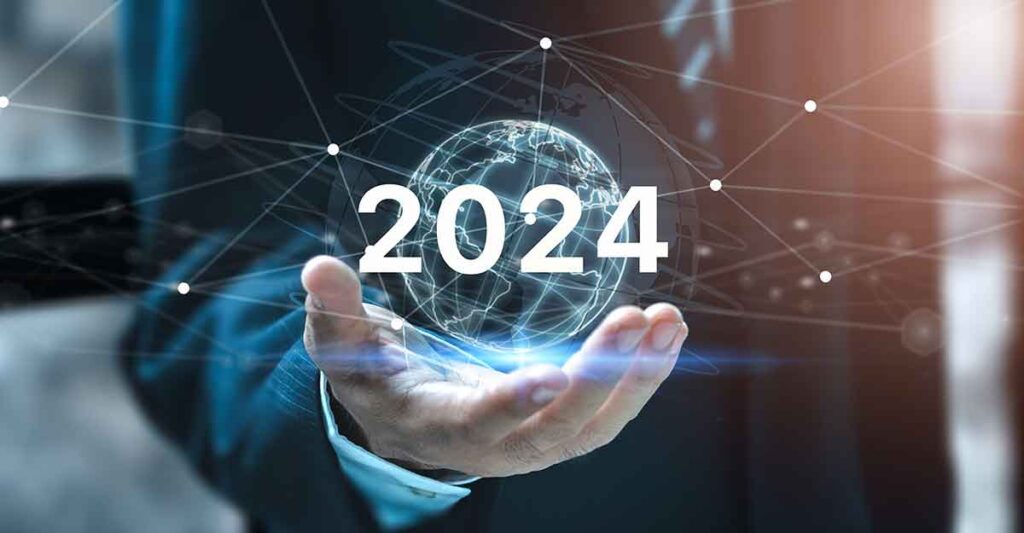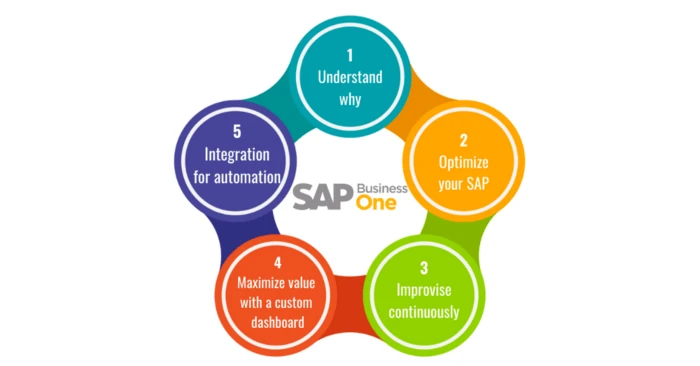The software suppliers that businesses depend on must adapt their offerings better to suit the needs of the upcoming generation of enterprises, just as companies must change to meet the difficulties of the modern world. And that includes ERP.
In 2024, the Enterprise Resource Planning (ERP) landscape is undergoing a significant transformation driven by technological advancements, changing business needs, and evolving customer expectations.
Here are some key trends shaping the ERP industry:
1. Cloud Adoption
Cloud-based ERP solutions continue to gain traction due to their scalability, flexibility, and cost-effectiveness. Organizations are increasingly moving away from on-premises systems to cloud-based ERP solutions to streamline operations, improve accessibility, and enhance collaboration.
2. AI and Machine Learning Integration
AI and ML are being integrated into ERP systems to automate routine tasks, provide predictive analytics, and optimize decision-making processes. From demand forecasting and inventory management to predictive maintenance and fraud detection, AI-powered ERP solutions are helping organizations drive efficiency and innovation.
3. Focus on User Experience
One of the key differentiators for ERP companies is user experience (UX). To increase user adoption and productivity, modern ERP systems are built with mobile accessibility, customizable dashboards, and easy-to-use interfaces. Vendors are putting more emphasis on UX enhancements to make ERP systems intuitive to use and navigate across many platforms.
4. Industry-Specific Solutions
ERP vendors are increasingly offering industry-specific solutions tailored to the unique needs of various sectors, such as manufacturing, retail, healthcare, and finance. These industry-specific ERP solutions provide specialized functionalities, compliance support, and best practices to help organizations address specific challenges and achieve their business objectives more effectively.
5. Integration with Emerging Technologies
ERP systems are integrating with emerging technologies such as the Internet of Things (IoT), blockchain, and augmented reality (AR) to enable new capabilities and drive digital transformation. For example, IoT sensors can provide real-time data for predictive maintenance in manufacturing, while blockchain technology can enhance supply chain visibility and traceability.
6. Security and Compliance
With the increasing threat of cyberattacks and data breaches, security and compliance are top priorities for ERP vendors and organizations. Modern ERP systems incorporate advanced security features such as data encryption, multi-factor authentication, and continuous monitoring to protect sensitive information and ensure regulatory compliance.
7. Customization and Modularization
ERP vendors are moving towards more modular and customizable solutions to meet the diverse needs of customers. Instead of one-size-fits-all implementations, organizations can choose and integrate specific modules based on their requirements, budget, and scalability considerations.
8. Focus on Sustainability
Sustainability is emerging as a key consideration for ERP implementations, with organizations seeking to minimize their environmental footprint and promote social responsibility. ERP systems are incorporating features for tracking and reporting sustainability metrics, managing carbon emissions, and optimizing resource utilization.
9. Hybrid Deployment Models
Hybrid deployment models, which combine on-premises and cloud-based ERP solutions, are gaining popularity as organizations seek to balance the benefits of cloud scalability with the security and control of on-premises systems. Hybrid ERP deployments allow organizations to leverage existing infrastructure while gradually transitioning to the cloud.
Osswal Infosystem Walk The Talk
All things considered, the ERP sector is developing to satisfy the ever-changing demands of contemporary enterprises by using new technologies, improving user experience, and spearheading digital transformation in a variety of sectors. We ensure that the vision we convey through our marketing is accurately reflected in our statement of direction and product roadmap.
In general, ERP is designed to adapt and modify to meet user needs and company objectives. Leaders in the technology industry should be aware of these developments as the market continues to undergo profound changes.




